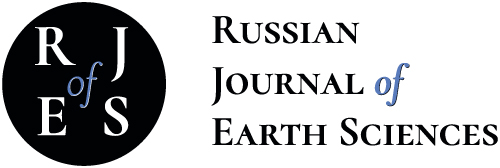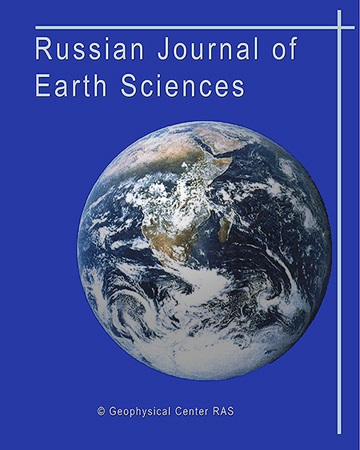The qualitative and quantitative analysis of the holomorphic folding morphology in the central segment of the South Tiennbsp;Shan revealed its heterogeneity in the Paleozoic rock sequences. Against the background of the gradual folding simplification from the axial parts of the mountain system to its periphery, the relatively intense dislocations alternate with less tense structural fields. The former are restricted to the anticlinoria and large anticlines, the latter, to the synclinoria and large synclines. The study of the fold formation history proved the fact that the recent orogenic structures had been inherited from the anticlinoria and synclinoria of Hercynian time. The disharmonic and highly variable folding of the South Tiennbsp;Shan seems to have originated as a result of the combined effects of three factors: 1nbsp;the deformation of the allochthone rocks during the gravitational movement of the tectonic nappes; 2nbsp;the external subhorizontal reduction of the crystalline basement and the overlying volcanic and sedimentary rock sequences, and 3nbsp;advective movements in the rocks of the sedimentary cover.
folding morphology, South Tien Shan, synclinoria, structural fields.
1. Akhmedzhanov, The Lower Paleozoic Rocks of the Middle and South Tien Shan, 1979.
2. Abdullaev, Tectonics and Geophysics of the Lithosphere, 2002.
3. Belousov, Fundamentals of Geotectonics, 1975.
4. Belousov, Fundamentals of Structural Geology, 1985.
5. Biske, The Paleozoic Structure and History of the South Tien Shan, 1996.
6. Burtman, Overthrust Geology and Mechanics, 1973.
7. Burtman, Structural Evolution of Paleozoic Fold Systems, 1976.
8. Chediya, The South of the Middle Asia in the Recent Orogenic Epoch, Book 2, 1972.
9. Goncharov, Mechanism of Geosynclinal Folding, 1988.
10. Dzhamalov, The Quaternary Tectonics of the Middle and South Tien Shan Junction Zone, 1986.
11. Dovzhikov, Tectonics of the South Tien Shan, 1977.
12. Klishevich, Dokl. Akad. Nauk SSSR, v. 290, no. 1, 1986.
13. Kukhtikov, The Tectonic Zoning and Important Patterns in the Structure and Paleozoic Evolution of the Gissar-Alai Region, 1968.
14. Leonov, Geotectonics, no. 5, 1985.
15. Leonov, The Tectonics of Orogenic Structures in the Caucasus and Central Asia, 1990.
16. Leonov, Geotectonics, no. 2, 1988.
17. Masumov, The Upper Paleozoic of the Middle and South Tien Shan, 1978.
18. Neotectonic map..., Neotectonic map of the Southern USSR, Ed. L. N. Polkanov, 1971.
19. Nesmeyanov, The Recent and Earthquake Generating Structural Features in the Western Gissar-Alai Region, 1978.
20. Porshnyakov, The Hercynides of the Alai and the Adjacent South Tien Shan Regions, 1973.
21. Ramberg, Gravity, Deformation, and the Earth's Crust, 1988.
22. Rogozhin, The Paleozoic Tectonics of the Western Segment of the Turkestan Range, 1977.
23. Rogozhin, The Heterogeneity of the Tectonosphere and the Crustal Evolution, 1986.
24. Rogozhin, Geotectonics, no. 1, 1993.
25. Rutten, The Geology of Western Europe, 1972.
26. Sinitsyn, The Tectonics of the Mountainous Surroundings of the Fergana Region, 1960.
27. Sholpo, The Alpine Geodynamics of the Greater Caucasus, 1978.
28. Sholpo, The Fold Pattern of the Greater Caucasus, 1993.
29. Shultz, Izv. Gos. Geogr. Soc., v. 69, no. 5, 1937.
30. The problems..., South Tien Shan Crustal Faults, 1973.
31. The active..., The active tectonics, geodynamics and seismicity of North Eurasia, A. F. Grachev, Ed., 2000.
32. The tectonics..., The tectonics of the Western Tien Shan Region, 1960.
33. Vikhert, Problems of Geonomy, 1972.
34. Volochkovich, Byul. MOIP, Ser. Geol., v. 54, no. 6, 1979.
35. Yablonskaya, Geotectonics, no. 1, 1989.
36. Yakovlev, Russian Journal of Earth Sciences, v. 3, no. 5, 2001.
37. Zamaletdinov, Geotectonics, no. 5, 1968.














